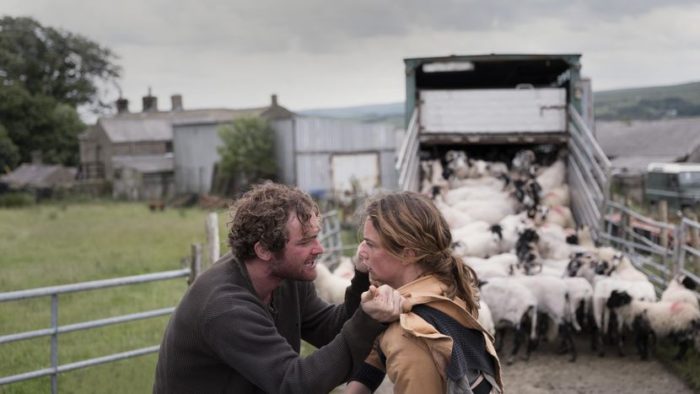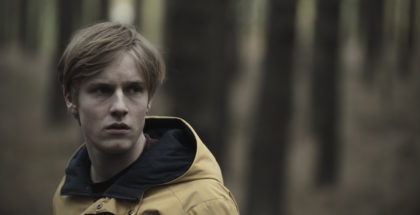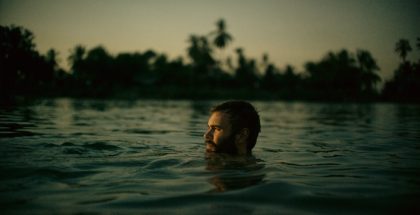VOD film review: Dark River

Review Overview
Cast
8Direction
8Landscape
8Rating
David Farnor | On 26, Jun 2018
Director: Clio Barnard
Cast: Ruth Wilson, Mark Stanley
Certificate: 15
Clio Barnard is one of the most exciting and talented British filmmakers working today. Dark River sees her move away from the raw naturalism coaxed out of non-professionals actors to work with recognised screen names, but the result has no less intensity or emotion.
Inspired by Rose Tremain’s book, Trespass, it stars Ruth Wilson as Alice, an estranged daughter and sister who moves back to her family farm after her father dies. Trying to reclaim the estate, while struggling to reconcile with her volatile brother (Mark Stanley), the stage is set for a 90-minutes drama as brooding as its gloomy title.
Indeed, the result is as much horror story as it is family drama, as the ghost of traumas past haunt Wilson’s expressions, as well as the harsh rural landscape. After The Levelling and God’s Own Country, Dark River completes an unofficial trilogy of bleak rural tales from the heartlands of Britain – a Gothic pastoral that conjures up an eerily empty house, harsh environments, pent-up emotions and barely buried conflict. At the core of it is the feeling of belonging on one’s own land, and it’s telling, perhaps, that this story should arrive as Britain ponders and negotiates its own future.
Here, that takes the form of Alice and her brother deciding the fate of the farm – a decision they clash over, their opposition fuelled by the unspoken resentment over the fact that she left years ago and he stayed.
Barnard is an expert at drawing strong, evocative performances from her cast and that same understated pain and vulnerability is unabashedly on display from both leads. Stanley, who plays Grenn in Game of Thrones, is genuinely intimidating – only beaten by Sean Bean, whose traumatic father figure lingers in unspoken flashbacks. Wilson, meanwhile, sheers sheep like she’s been doing it for years, investing her resilient survivor with the kind of everyday realism that has singled out Barnard’s work from the pack in recent years. The result is a moving study of unspoken grief and aggressive denial, of violent memories looming over an isolated presence, and the strength it takes to steer the future out of its shadow.
Related Posts
Netflix orders first German original series... February 24, 2016 | David Farnor

Netflix goes Dark with first German original series... October 20, 2016 | David Farnor

Netflix UK TV review: Dark (spoilers) December 4, 2017 | Benedict Seal

VOD film review: River July 20, 2016 | Anton Bitel
















